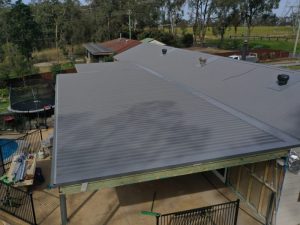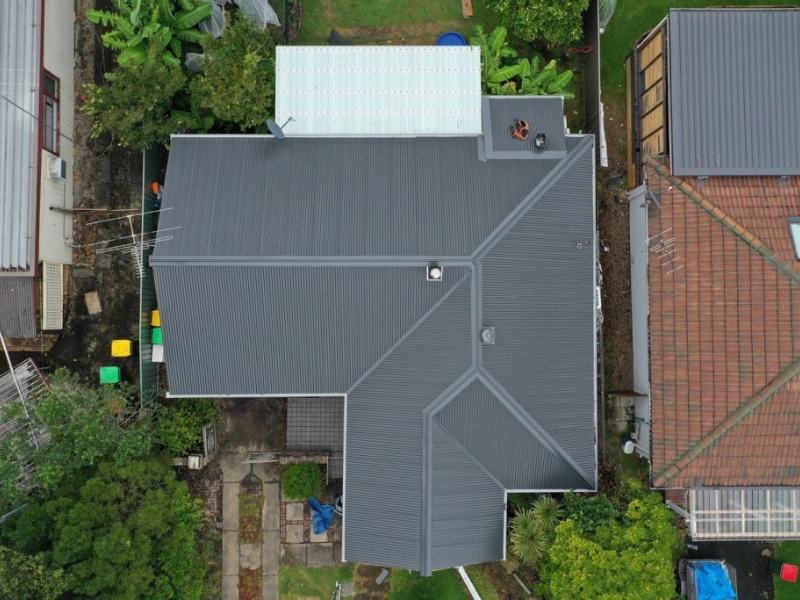Exterior noise pollution is a growing concern for homeowners and business owners, especially in areas with high traffic, industrial activity, or unpredictable weather. If you’re considering a metal roof, you might be wondering whether it helps reduce noise or if it makes your home noisier. Contrary to common misconceptions, modern metal roofing systems can effectively minimise exterior noise pollution when properly installed and insulated. This article will explore how a metal roof compares to other roofing materials in noise reduction, the key factors influencing their soundproofing capabilities, and how to enhance their performance.
What causes exterior noise pollution in homes?
Several factors contribute to noise pollution in residential and commercial properties:
- Traffic noise – Roads, highways, and construction sites generate constant sound disturbances.
- Weather conditions – Heavy rain, hail, and strong winds can amplify external noises.
- Aircraft and trains – Living near airports or railway lines exposes properties to significant noise levels.
- Neighbourhood activities – Outdoor gatherings, machinery, and urban sounds add to unwanted noise.
- Wildlife and animals – Bird calls, barking dogs, and other animal sounds can contribute to noise pollution.
Reducing these noises often requires structural solutions, including high-quality roofing materials that can absorb or deflect sound. Additionally, explore the regulations concerning noise pollution control in residential areas to understand how local guidelines may impact your efforts to minimise external noise.
How do metal roofs compare to other roofing materials for noise reduction?
One of the biggest misconceptions about metal roofs is that they are noisier than other materials. However, the truth depends on the roofing system and installation. Here’s how metal roofs stack up against other common roofing materials:
Roofing Material | Noise Reduction Capability | Additional Soundproofing Needed? |
Metal Roofing | Moderate to High (with insulation) | Yes (underlayment, insulation) |
Asphalt Shingles | High | No (built-in sound absorption) |
Tile Roofing | Very High | No (dense material) |
Flat Roofs (TPO/EPDM) | Low | Yes (membrane and insulation) |
Key takeaways:
- When installed with proper insulation and underlayment, metal roofs perform comparably to asphalt shingles and tile roofs in noise reduction.
- Unlike tile and shingle roofs, metal roofing requires additional layers to achieve optimal soundproofing.
What factors influence metal roof noise reduction?
The effectiveness of a metal roof in reducing noise depends on several factors:
- Roofing material thickness: Thicker metal panels reduce sound transmission better than thinner ones. High-quality metal roofs use 24- or 26-gauge steel, which dampens vibrations effectively.
- Roofing system design:
- Standing seam metal roofs with concealed fasteners reduce noise more effectively than exposed fastener systems.
- Pitched roofs deflect sound waves better than flat designs.
- Underlayment and insulation: Adding layers beneath the metal roofing significantly enhances noise reduction:
- Acoustic underlayment absorbs sound waves before they enter the home.
- Fibreglass or foam insulation creates a barrier against exterior noise.
- Plywood sheathing reduces vibration and sound transmission.
- Attic space and ventilation: A well-ventilated attic with insulation can further minimise noise. The air gap between the roof and ceiling acts as a buffer, reducing the impact of rain and wind noise.
- Environmental factors: Properties surrounded by trees or natural barriers experience less noise pollution.

How can you further improve metal roof noise reduction?
If you’re concerned about noise, several additional techniques can enhance the soundproofing of your metal roof:
- Upgrade to a high-quality roof decking: Using a thicker plywood or OSB (oriented strand board) decking reduces noise transfer.
- Install soundproofing insulation: Opt for spray foam insulation to fill gaps and prevent sound transmission. You can also use fibreglass batts for additional acoustic dampening.
- Choose the right underlayment: Acoustic underlayments like felt paper, rubber, or foam layers absorb impact noise.
- Add roof ventilation systems: Proper roof ventilation prevents sound waves from amplifying inside enclosed spaces.
- Opt for heavier metal panels: A 24-gauge metal sheet will perform better than a 29-gauge sheet in reducing noise.
- Consider a soundproof ceiling: Installing drywall with sound-dampening properties inside your home adds an extra layer of noise reduction.
By incorporating these soundproofing techniques, you can create a quieter and more comfortable indoor environment, no matter the external noise sources. Additionally, discover how residential metal roofing installation can further enhance noise reduction and overall home comfort.
Are metal roofs a good investment for noise reduction and energy efficiency?
Beyond noise reduction, metal roofs offer long-term benefits, including durability and energy efficiency, making them a smart investment for homeowners and businesses. To better understand their longevity and performance, explore how the lifespan of a metal roof compares to other materials.
Noise reduction benefits
- Significantly reduces rain and hail noise with proper insulation.
- Blocks exterior traffic and industrial sounds.
- Works well in both urban and rural environments.
Energy efficiency advantages
- Reflective coating – Deflects heat, reducing cooling costs in summer.
- Thermal insulation – Paired with insulation, it helps maintain indoor temperature stability.
- Longevity – It can last for years, reducing replacement costs.
- Eco-friendly – 100% recyclable, reducing environmental impact.
Comparison of Cost vs. Benefits
Feature | Metal Roof | Asphalt Shingles | Tile Roofing |
Noise Reduction | High (with insulation) | High | Very High |
Energy Efficiency | Very High | Moderate | High |
Lifespan | 40-70 years | 15-30 years | 50+ years |
Maintenance | Low | Moderate | Low |
Cost | Higher upfront, lower long-term cost | Lower upfront, higher maintenance | High |
Is a metal roof right for you?
A metal roof is an excellent choice if you’re looking for a durable, energy-efficient, and noise-reducing roofing solution. While it requires additional insulation for maximum noise reduction, it outperforms many traditional roofing materials in longevity and environmental impact.
If you’re considering upgrading to a metal roof and are concerned about noise pollution, rest assured that modern metal roofing systems, when properly insulated and installed, can significantly reduce exterior noise. Whether you’re dealing with traffic, harsh weather, or industrial sounds, a well-installed metal roof enhances comfort by creating a quieter living or working environment. For the best results, explore how Scott’s Metal Roofing can help you achieve a quieter, more durable home.

